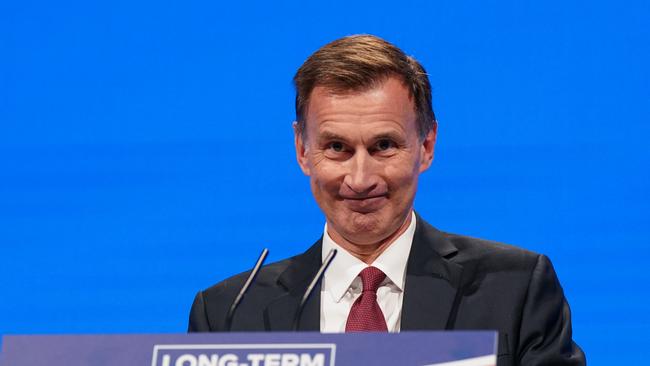Rishi Sunak still lacks a coherent economic policy for Britain
The Conservatives’ approach of austerity mixed with nimbyism fails to meet the scale of challenge at home or abroad.

What, do you suppose, is this government’s greatest economic talking point? It certainly isn’t tax cuts or infrastructure. The less said about public services the better. No, the biggest achievement touted by both Chancellor and Prime Minister this week was that the Office for National Statistics has revised up its estimate of how fast the UK recovered from the pandemic. Instead of growing slower than most other major economies, it seems we grew faster.
“Don’t bet against Britain,” Chancellor Jeremy Hunt declared. “It never works.”
Tell that to the bond market. Government borrowing costs are hitting higher levels than they did after Liz Truss’s mini-budget last year, albeit alongside higher inflation. The central bank sugar rush used repeatedly to jump-start the economy for the past decade has run out.
Prime Minister Rishi Sunak made much of his promise to reallocate HS2 funding to “hundreds” of smaller rail and road schemes. I’m sure he is right to fund all of them and I truly hope they can overcome the legal and political obstacles HS2 couldn’t, but these projects ought to have been funded either way. They represent little change in the Tories’ overall approach to the economy, which is to stick with austerity and let every other ambition be thwarted by nimbyism.
Given the state of gilt markets, it’s easy to understand the batten-down-the-hatches mentality. My own view is that markets would tolerate more spending for the right investments and that such spending is essential to deal with critical national security vulnerabilities and overcome Britain’s low-productivity trap.
At the Tories’ conference in Manchester this week, there were broadly two or three camps on the economy, but none of them was yet ready to embrace what is really needed.
The closest to the right position are the so-called New Conservatives, a group led largely by 2019-intake MPs like Danny Kruger and Miriam Cates, who are somewhat younger, more socially conservative and less weighed down by the baggage of the past 13 years. They look with scepticism on Thatcherite solutions to modern-day problems and worry about the damage to family and local life caused by declining industry and excessive immigration.
Yet while Cates in particular has led courageously in taking on the trans lobby and exposing the damaging propaganda being fed to children in the name of “sex education”, the movement is leaning excessively on social issues rather than developing a distinct approach to the economy. This is unfortunate because it is on the economy that our future prosperity, public services, social stability and winning elections depend.
Worse still, rather than following their instincts, the New Conservatives seemed this week to throw in their lot with the more established Thatcher-redux brigade led by Truss.
Jacob Rees-Mogg, fresh from speaking at the Truss “growth rally”, spoke at the launch of a New Conservatives tax “manifesto”, and MPs from both camps signed a pledge not to vote for any budget with more tax rises.
While the proposals in the mini-manifesto were largely modest and sensible – in particular the removal of the absurd and anomalous 60-70 per cent marginal tax rates for certain income brackets – they are no substitute for a coherent economic policy. The newcomers should not allow themselves to be subsumed by Trussites.
The third camp are those currently in government who view themselves broadly as the “tough decisions” brigade. In principle, they agree with Truss. Hunt was calling for corporation tax cuts not long ago. Unlike Truss, they understand actions have to be taken in the right order to be effective.
They are also, reluctantly, being mugged by the reality of the global subsidy race, which has started forcing the UK to spend to keep hold of the critical industrial capacity we have left.
So what’s left? If money is too tight for tax cuts and the government is too scared or unwilling to consider scaling up investment, there is only one important economic lever left, which is deregulation.
There is private money ready to be invested in new houses, laboratories, airports, power lines and our remaining natural resources. Getting such activity going requires slashing the thicket of legal and regulatory barriers that did for HS2. This, we have learnt from experience, is something the government is not willing to do. For a decade, giving into nimbyism has been the politically cheapest route. Only now are Tories paying the price of their inaction, but it is too late to do much about it. Sunak doesn’t even have an electoral mandate for decisions he has made and cannot even implement the mildest of tweaks.
People want to hear a coherent plan for how Britain is going to get out of its slump. So far, judging by its conference, no one in the Tory party is ready to offer one.
The Times



To join the conversation, please log in. Don't have an account? Register
Join the conversation, you are commenting as Logout